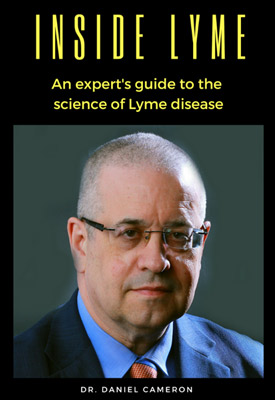Lyme Disease Science Conversations:
Boy suffers heart attack from Lyme Disease
Live conversations with a leading expert, Dr. Daniel Cameron, about the latest discoveries and advancements in Lyme disease and associated illnesses.
We will discuss the case of a 12-year-old boy who suffered a heart attack as a result of Lyme disease on January 30, 2018 at 8PM EST. While the boy made a full recovery of cardiac functioning, he had neurologic injury that required long-term rehabilitation. The case was featured in the February 2017 issue of HeartRhythm Case Reports.
Comments are no longer live. This is an archive of a Lyme Hangout held on 1/30/2018. You can still view the video below.




